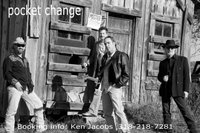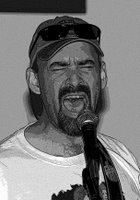
There was an exercise in aftercare about emotions. I feel ___________ when you ________ because _________.
It called for honesty and I was never very good at it. Just like a lie, truth spins its own spiderweb and it's a chore to get free.
We sat in a small circle, friends and families of the addicts in the next room doing the same thing. There were horror stories - a mother who watched as her child slept in an abandoned car in freezing weather rather than give up cocaine, a wife who's husband sat naked, screaming and throwing beer bottles until the police came, a sister who found her twin dead of an overdose. It was called "tough love" or "setting limits" but what it meant was watching someone you loved kill themselves and acknowledging your part. No addict really dies by his own hand alone - he must have a safety net, someone to protect him, cover up for him, enable him to keep drinking or taking drugs without consequences or pain. It can be an entire network between him and recovery but it really only takes one.
We do it for a variety of reasons - shame, fear of discovery, terror at the thought of being alone, martyrdom, a need to be better than who we love, a belief that love will win out over the addiction - sometimes we are just so beaten down that it's easier, sometimes we can't or won't confront our own contribution. Sometimes we want to save someone so badly that we don't see the harm we do to them and ourselves. Sitting in that small circle meant looking inward at our own motives, at out own behavior. It was painful and it left emotional wreckage. None of us wanted to admit to being wrong or at fault even in the smallest way. We wanted to be the heros, the saviors,
the long suffering, willing to sacrifice, abused and mistreated victims. We wanted to stand proud even if only in our own minds of what we had tolerated. We wanted to be the good guys.
Coming to terms with the truth trapped us as substance abuse had trapped the ones we loved. The way out was a small circle of trust where we could fill in the blanks honestly.
































